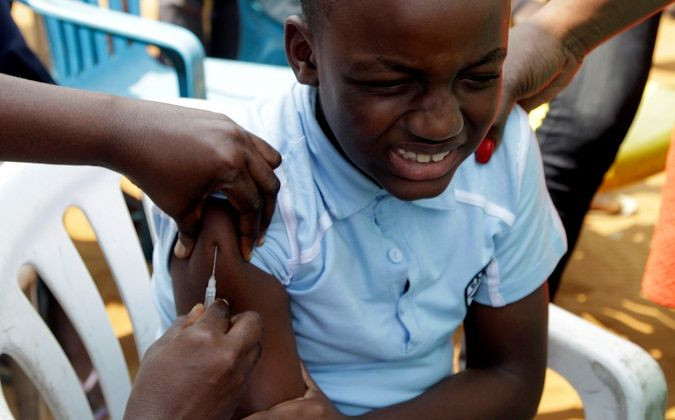What Is A Universal Flu Shot? Influenza Vaccine Would Mean No More Seasonal Injections

Sick of getting a new flu vaccine every time the winter rolls around? A new study has revealed some crucial information that could lead to a future universal vaccine for influenza. Researchers at McMaster University previously identified a class of antibodies capable of neutralizing dangerous strains of the virus, and have now found that certain antibodies recruit helpful white blood cells, while others block the cells, and where they bind on the virus makes all the difference, a news release from the university stated.
"Our findings show that just having antibodies isn't enough. You have to have antibodies that bind to very specific places on the virus," said Matthew Miller, the senior author of the study, in the statement. "Now that we know the places where antibodies have to bind, we can modify our vaccines so that we generate those antibodies in higher numbers."
Universal flu vaccines, unlike their seasonal counterparts, actually recruit white blood cells to destroy infected cells — while also generating antibodies that prevent the virus from infecting cells. Miller and his team have learned that certain antibodies help recruit white blood cells, but others also have the potential to block their recruitment.
"Using this knowledge, what we can now do is specifically design our universal vaccine to generate the most desirable types of antibodies and avoid antibodies that block the functions that we want," said Miller in the release. "In doing so, we can make sure that the vaccine will work in the most effective way possible."
The World Health Organization estimates that annual flu epidemics can cause up to half a million deaths globally. An influenza vaccine is considered the best way to reduce your chances of getting the bug. The Centers for Disease Control and Prevention recommends that everyone 6 months of age and older receive one every year because the virus and vaccines vary from season to season, so last year's vaccine won't protect you.
Earlier this week, another study was published revealing that an international team of researchers has designed two universal influenza vaccines. One is United States-specific and covers 95 percent of influenza strains in the 50 states, and the second is a universal vaccine that covers 88 percent of known flu strains globally. They are now looking for pharmaceutical partners to synthesize their vaccine for a laboratory test, according to a news release.
Source: Leon PE, He W, Mullarkey CE, Bailey MJ, Miller MS, Krammer F, et al. Optimal Activation Of Fc-Mediated Effector Functions By Influenza Virus Hemagglutinin Antibodies Requires Two Points Of Contact. Proceedings of the National Academy of Sciences. 2016.
Read more:
Flu Shot 2016 Effectiveness: Does The Influenza Vaccine Work During Peak Season For Illness?
Published by Medicaldaily.com



























